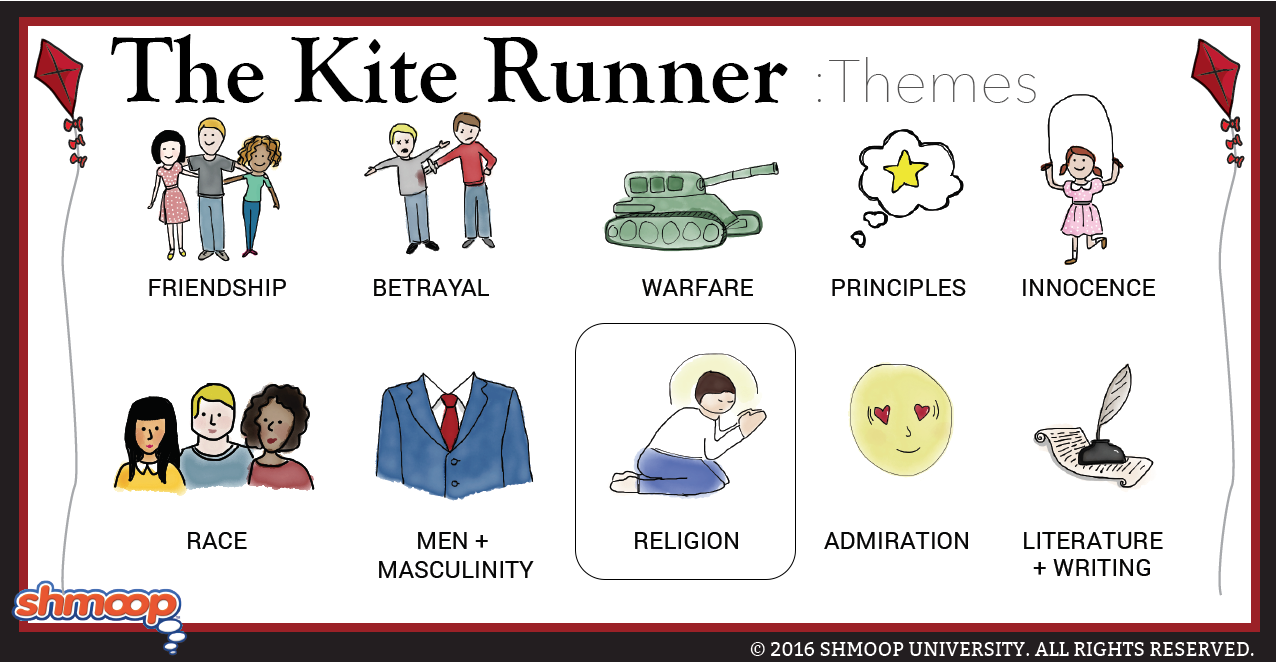 (Click the themes infographic to download.)
(Click the themes infographic to download.)
Early on in The Kite Runner it seems like there are only two approaches to religion. Either you're an extremist like the protagonist's teacher, who considers drinking an offense punishable by hell, or you're liberal like the protagonist's father, who thinks religion is silly and drinking is fun. Also, religion justifies some of the horrific acts in the book. However, by the end of the novel we do see the development of religious sentiment based on spiritual awakening and recourse to God in times of suffering. We wonder, however, if this development is enough to counter the novel's earlier depictions of religion as a justification for cruelty.
Questions About Religion
- Is the character of Baba just as close-minded about Islam as Mullah Fatiullah Khan (Amir's teacher) is about Baba's occasional scotch? Or is Baba not close-minded at all and instead just indifferent to religion?
- What role does Amir's spiritual awakening play in the novel? Why do you think Hosseini included it in the plot?
- It's easy to forget about Ali's faith in the novel since Hosseini rarely mentions it. Hosseini does, however, describe Hassan and Ali reciting their daily prayers. Do you think Amir aspires to Ali's practice of faith later in the novel? Does Amir discard both his father's approach to faith and Mullah Fatiullah Khan's in favor of Ali's?
- Late in the novel, Amir and Farid (Amir's driver in Afghanistan and Pakistan) witness a public stoning. Two adulterers are put in hole in the ground, blindfolded, and stoned. Baba also commits adultery in the novel. Do Amir and his father avoid punishment for their "sins"?